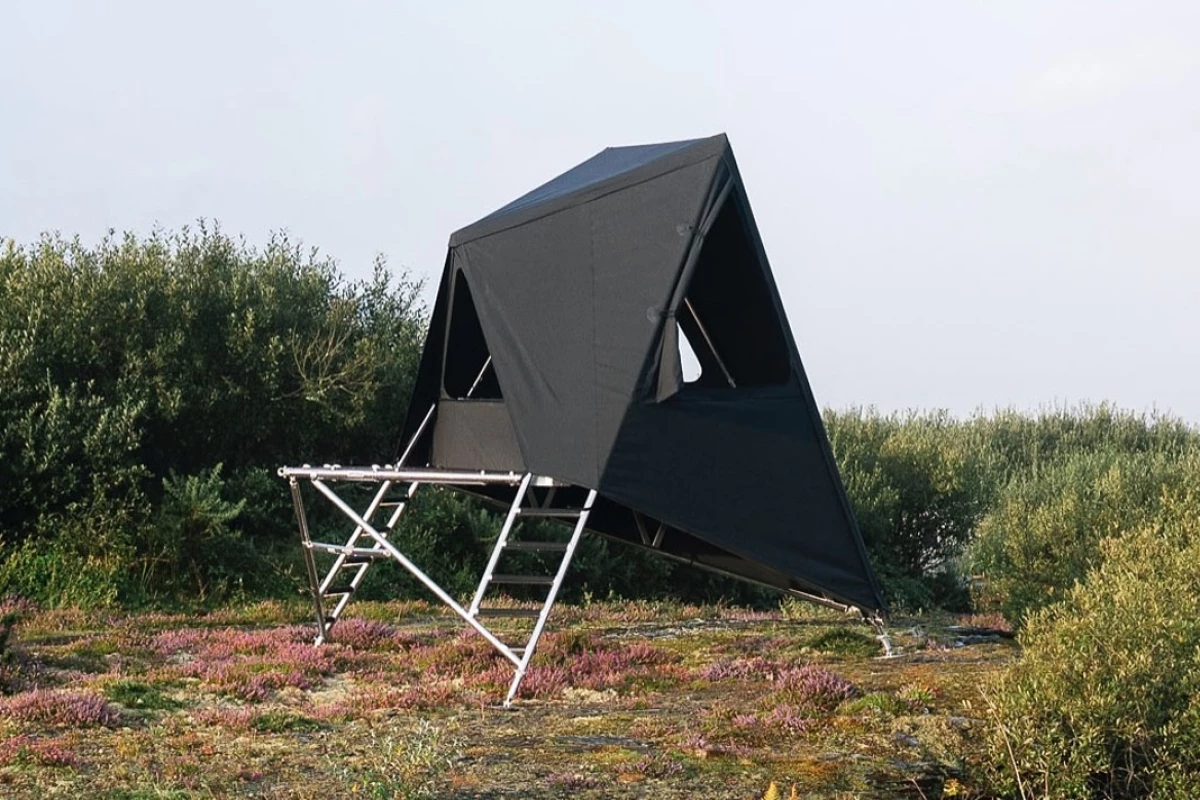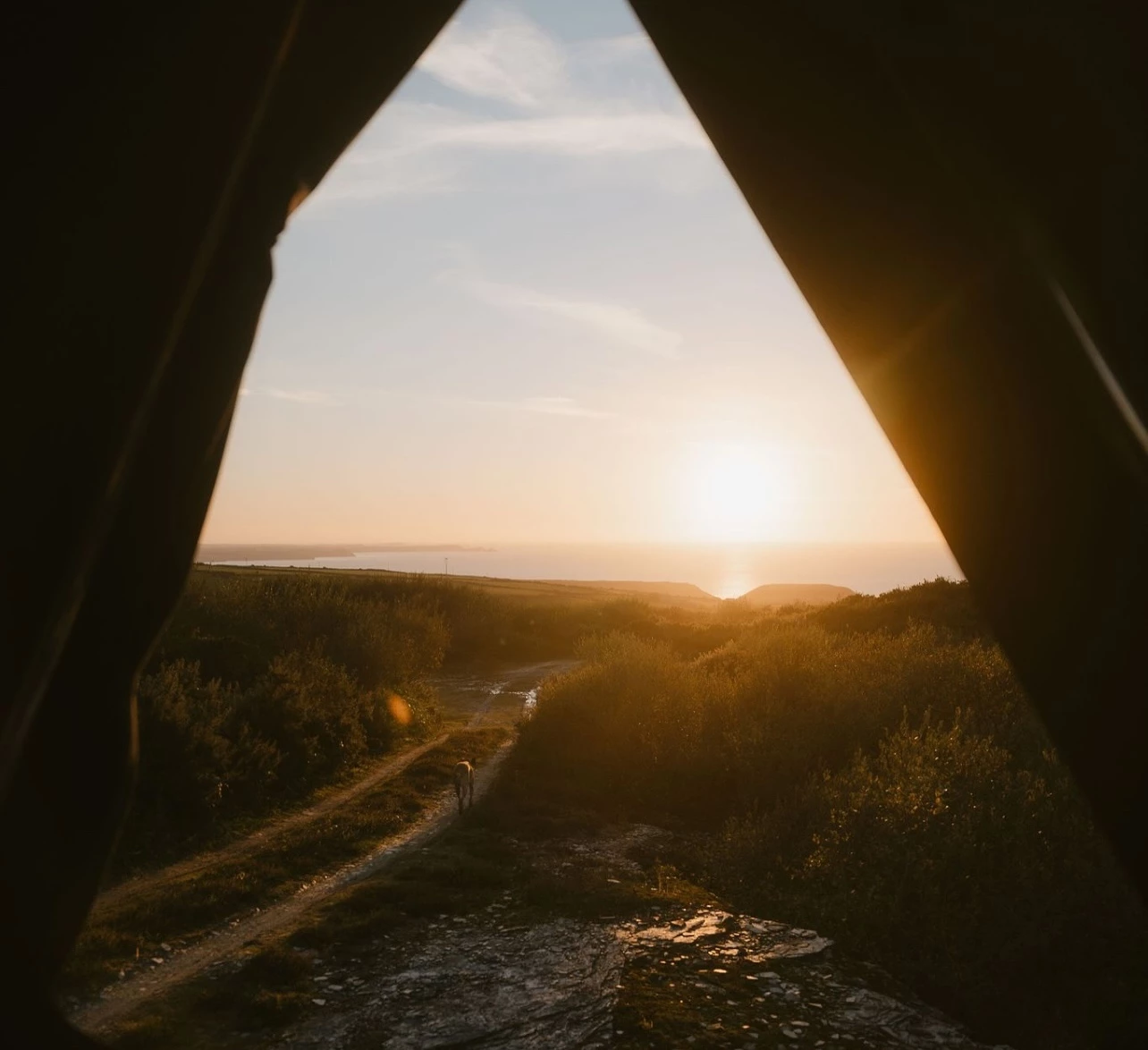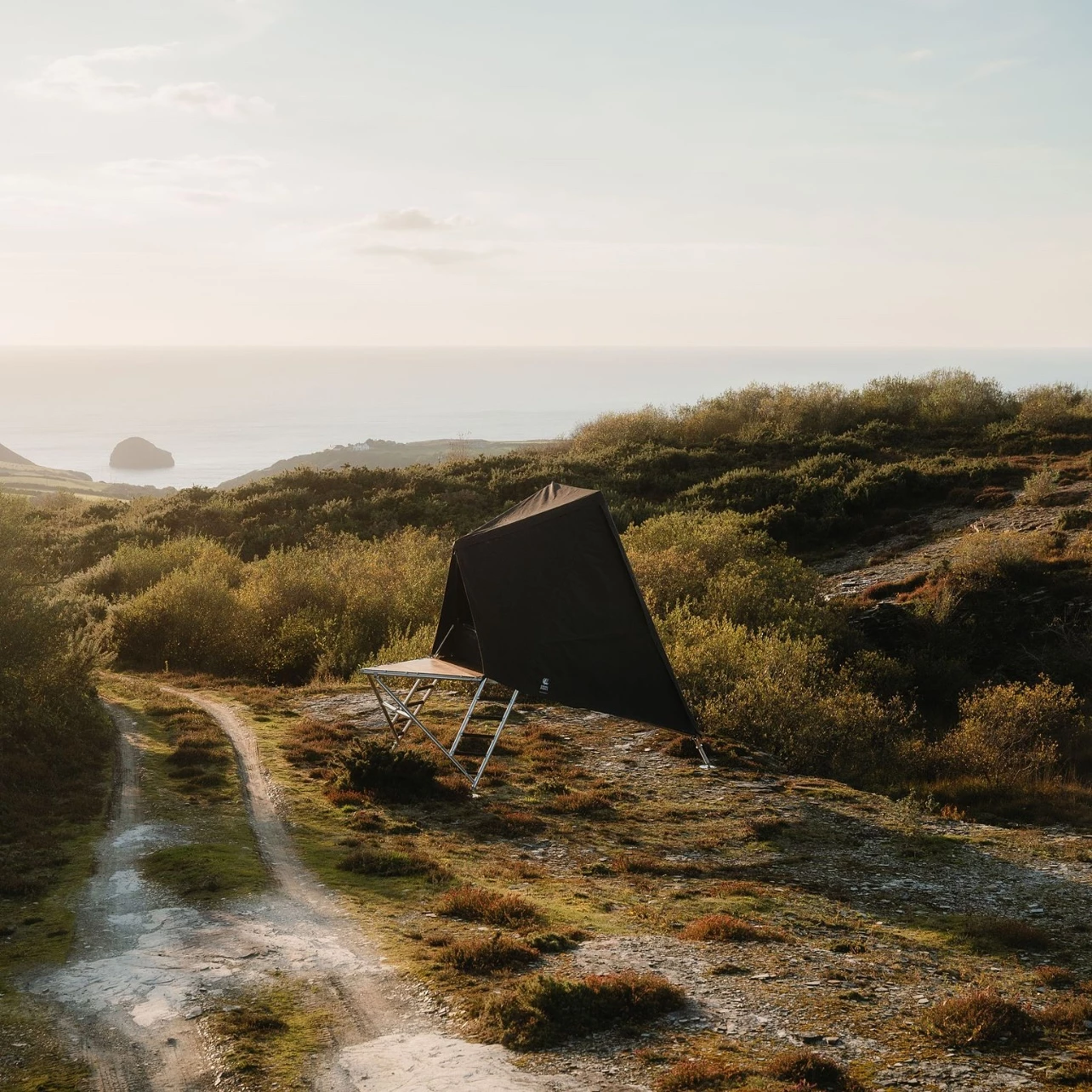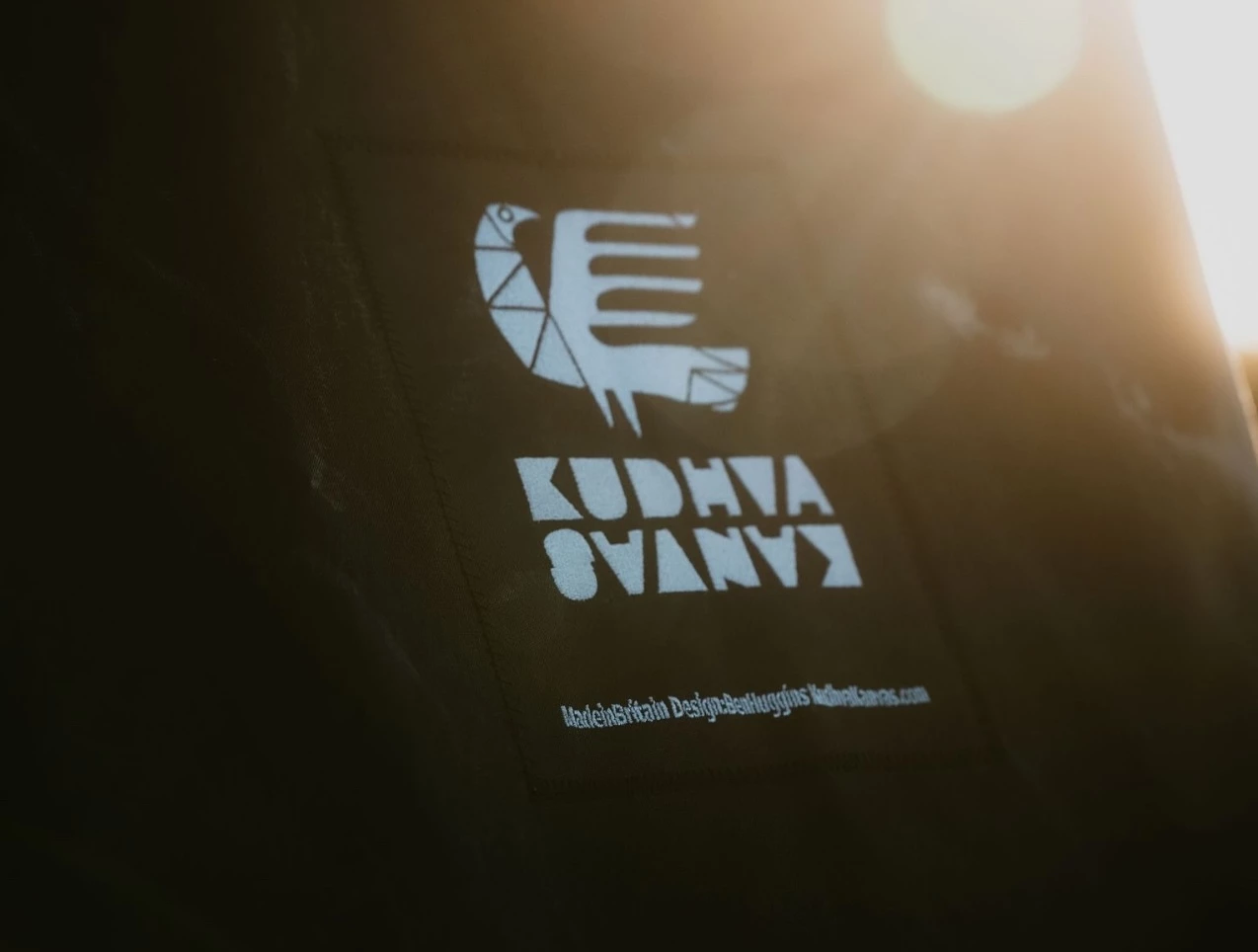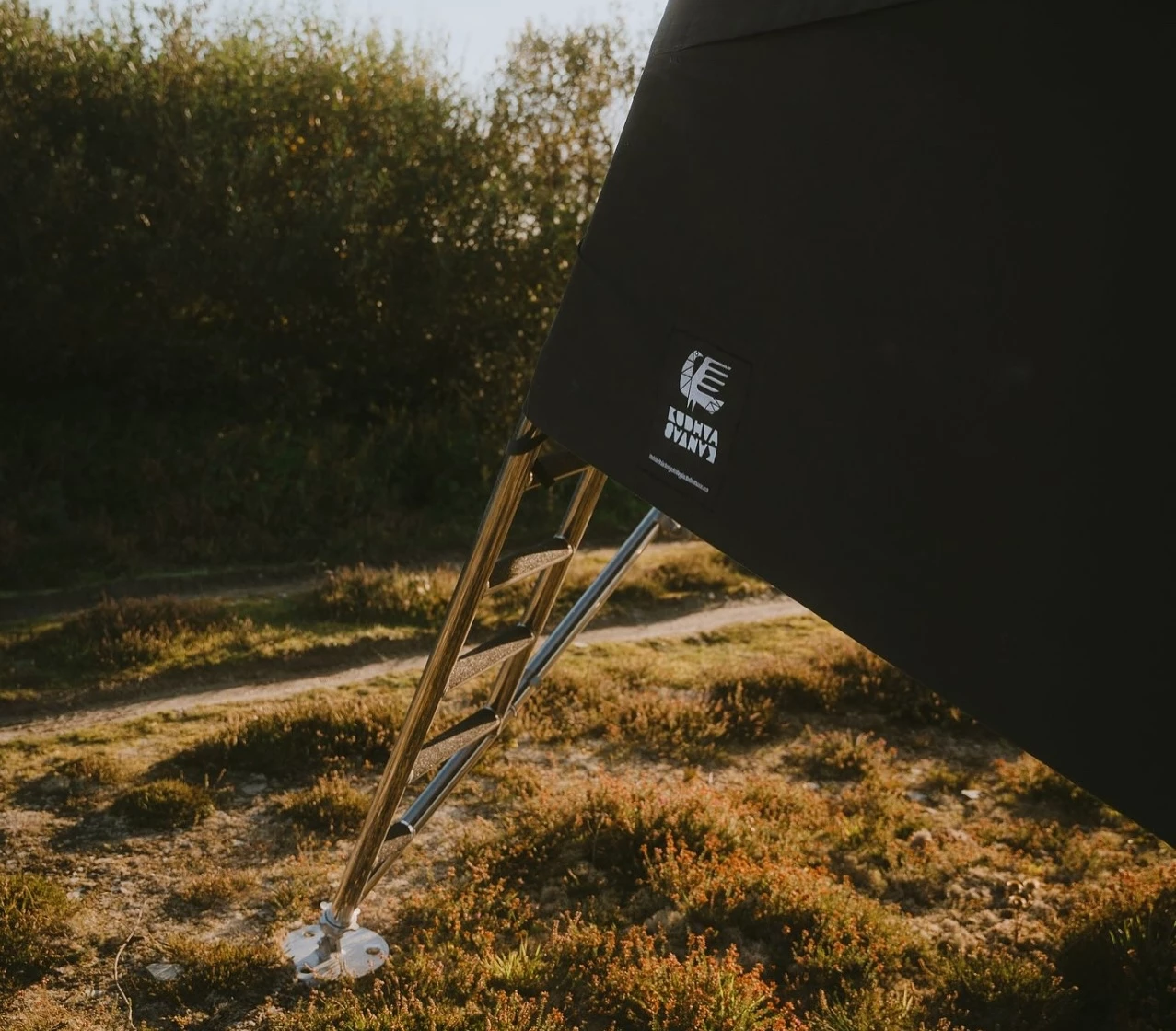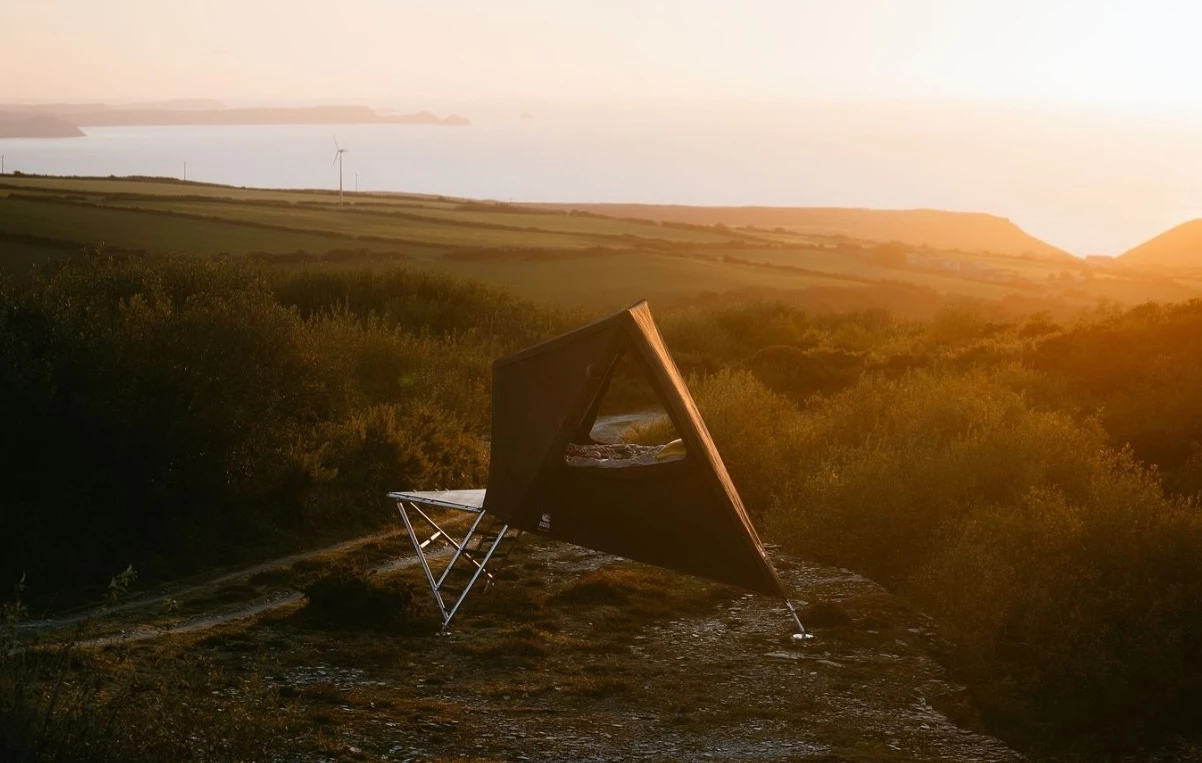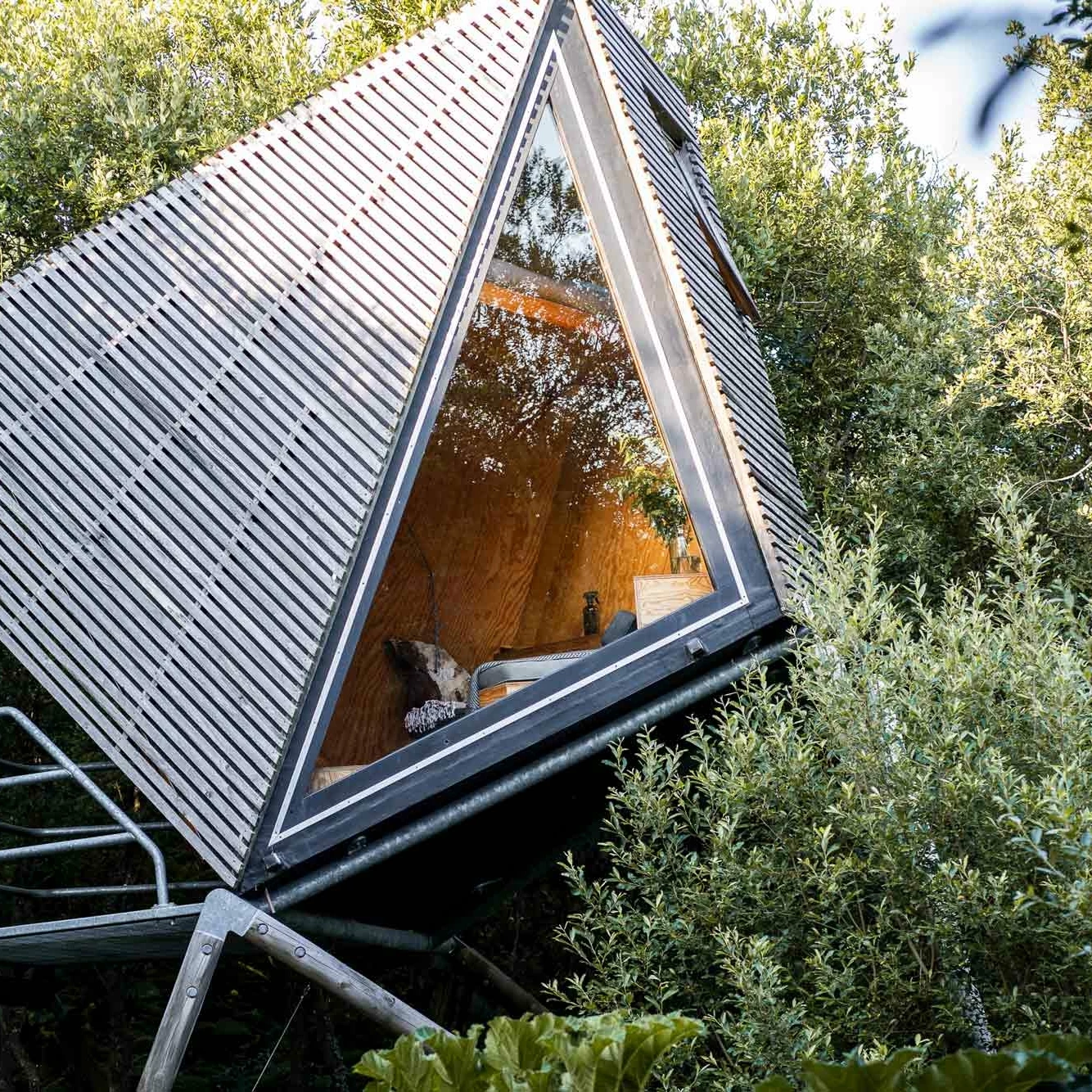Splitting the difference between a camping cabin and a heavy-duty safari tent, the new K-Tent from Kudhva Kanvas is a glamping retreat meant to hop between destinations. Its sturdy aluminum-tube frame stands up to the elements and lifts campers off the ground for a warm, level, stable night of sleep closed off from the bitter wilds by thick British canvas. Set it up permanently on your own slice of land or use it as a nomadic base camp while traveling.
Kudhva set out to meet demand for a retail version of the distinctively treehouse-style off-grid cabins it rents out on England's North Cornish coast. With help from New British Design, the same firm behind the stilted cabins themselves, the company created the K-Tent, a skin-and-bones camping shelter with all the charm of the original Kudhva cabin stuffed into a simpler, more portable form.
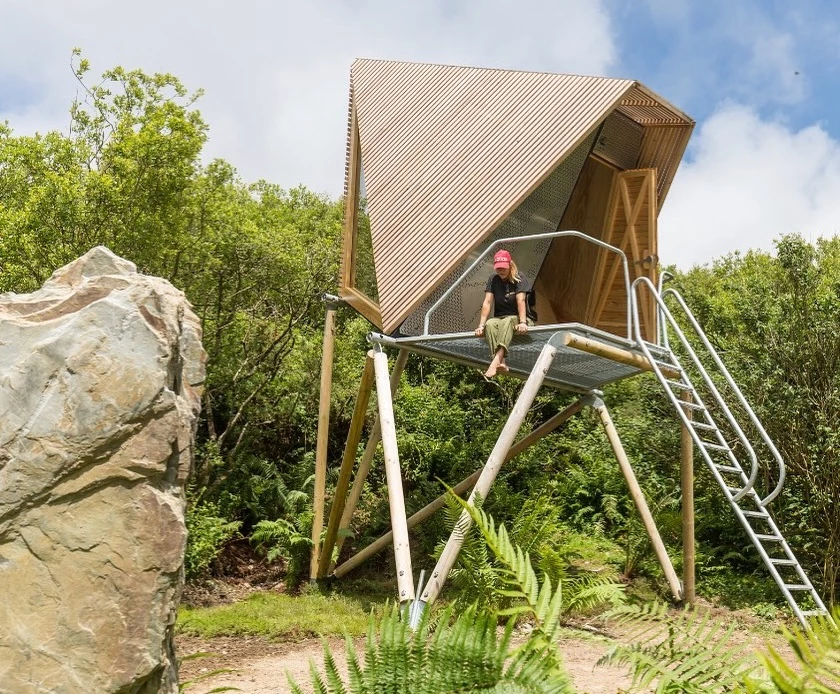
With the K-Tent, Kudhva takes aim primarily at enterprises looking to capitalize on a stylish but flexible piece of outdoor architecture not necessarily tied to a single location, marketing the new offering at the likes of music festivals, event hosts, wellness retreats and glamping resorts. The tent is also billed as a cost-effective alternative for starting up a rental business without the intensive building and permitting costs of developing a more permanent structure.
Of course, the K-Tents can also be used by adventurous individuals looking for something a little more elegant and design-forward than the typical ground tent. In fact, portable camping cabins that unite the architectural and camping gear markets into one have become something of a trend in recent months and years, exemplified quite well by the all-new Nokken Softshell and several other interesting tent products that achieved fame in 2024.
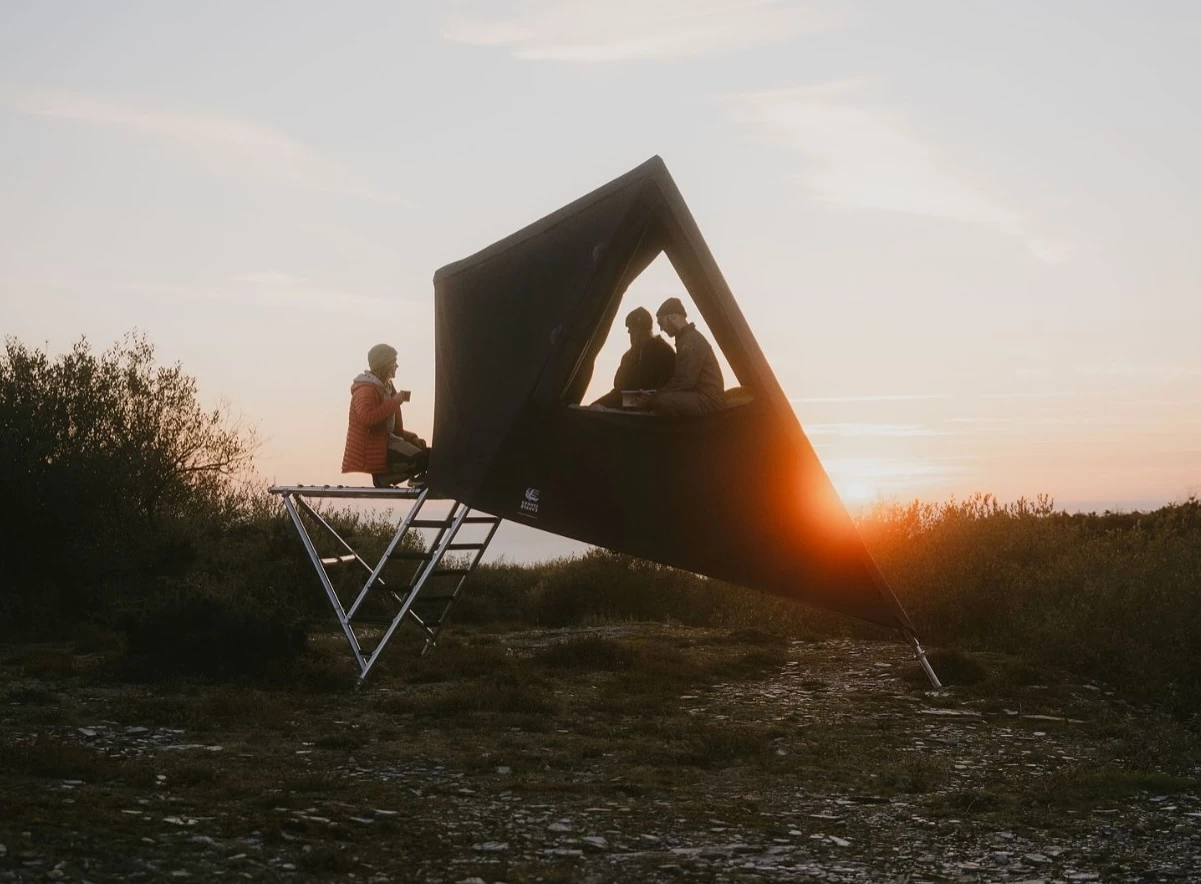
Whatever ultimate purpose one might have in mind for their K-Tent, the structure remains the same. The design features a stout all-aluminum hexagram-angled frame that stands tall on four legs with disc feet. Anchor holes allow the feet to be secured to the ground. The legs adjust to level out the sleeping platform inside, and the platform extends beyond the doorway to create an open-air deck ideal for taking in the views.
The tent stands nearly 12 feet (3.6 m) tall with a build that stretches out 16 x 10.8 ft (4.9 x 3.3 m). It sleeps two people, who climb up and down via the ladders integrated into the front legs.
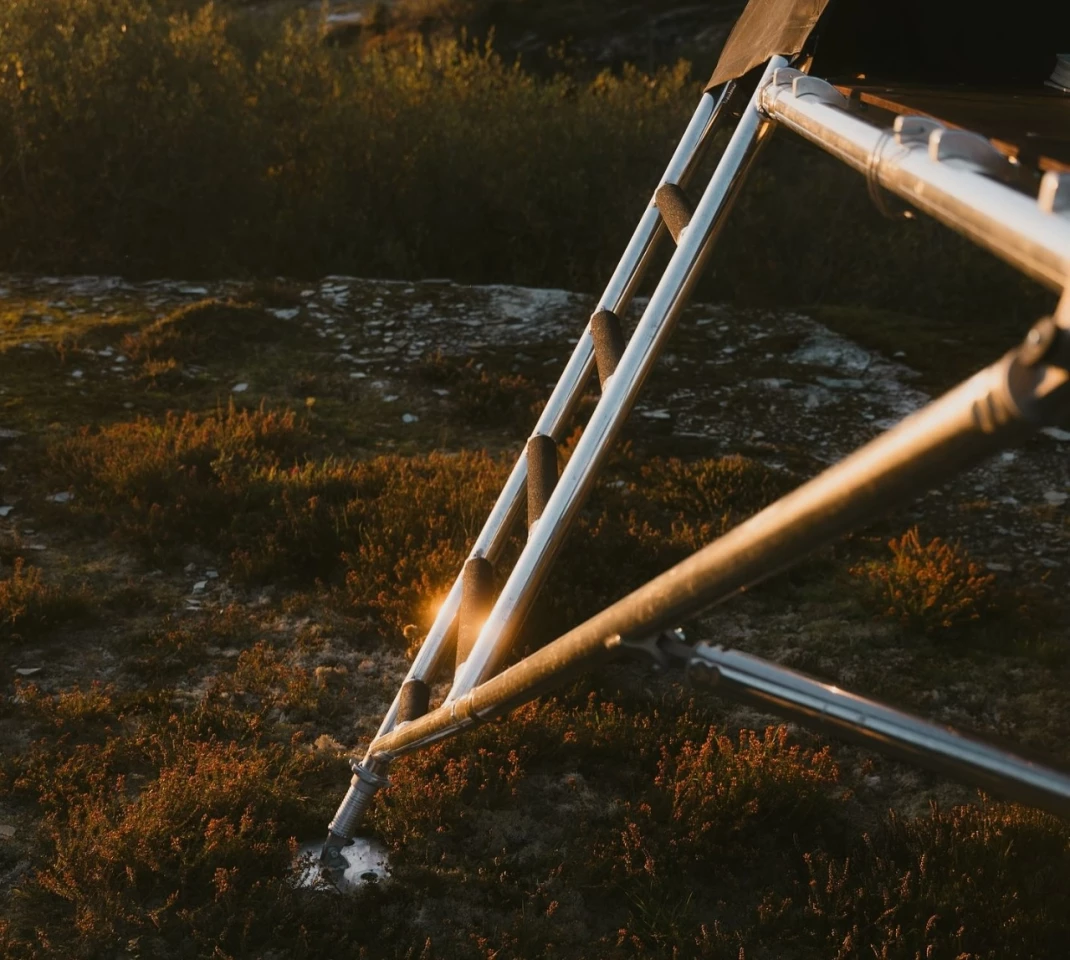
While it certainly won't compete with the fastest-pitching ground tents on the market, the K-Tent's estimated 30- to 45-minute setup time (for two people) isn't prohibitive to travel, allowing users to carry it from campsite to campsite should they wish. It might not be the best solution for overland trips that involve traveling to a new place every day but should prove more suitable when staying in a single spot for days or weeks at a time.
The K-Tent's strong aluminum frame and heavy-duty British Millerain Regentex fabric also make it feasible for more stationary use as a light cabin getaway. Kudhva mentions on Facebook that the structure has been tested in fierce 80-mph (129-km/h) winds and sub-zero temperatures.
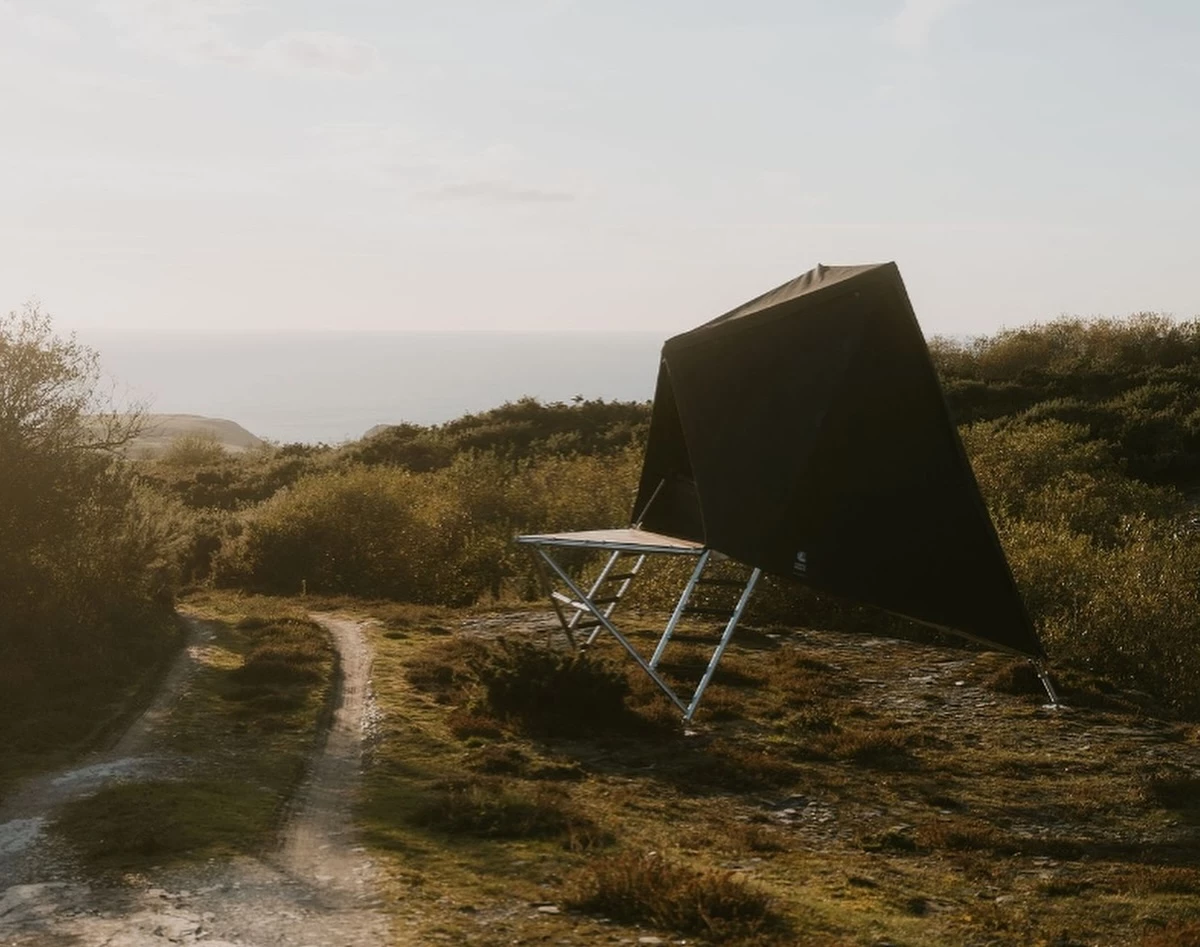
At 705 lb (320 kg), the K-Tent isn't going to compete with even the heaviest base camp tents as far as casual car camping, but it is ready to offer a high-rising alternative to the likes of yurts, tipis, flat-packed camping pods, and other light, architecturally innovative off-grid shelters. It's certainly more readily portable than a log cabin or stilted hard-walled tiny house.
Unsurprisingly, the K-Tent's £12,500 (approx. US$15,650) price tag, including VAT and mainland UK delivery, suitably mirrors its status between ground tent and residential cabin – much more expensive than the typical camping tent but presumably well cheaper than building a permanent cabin or towing a brand-new tiny home to your off-grid property. Kudhva plans to build the tents to order in Great Britain, and advertised lead time currently hovers around 12 to 14 weeks.
Source: Kudhva Kanvas
